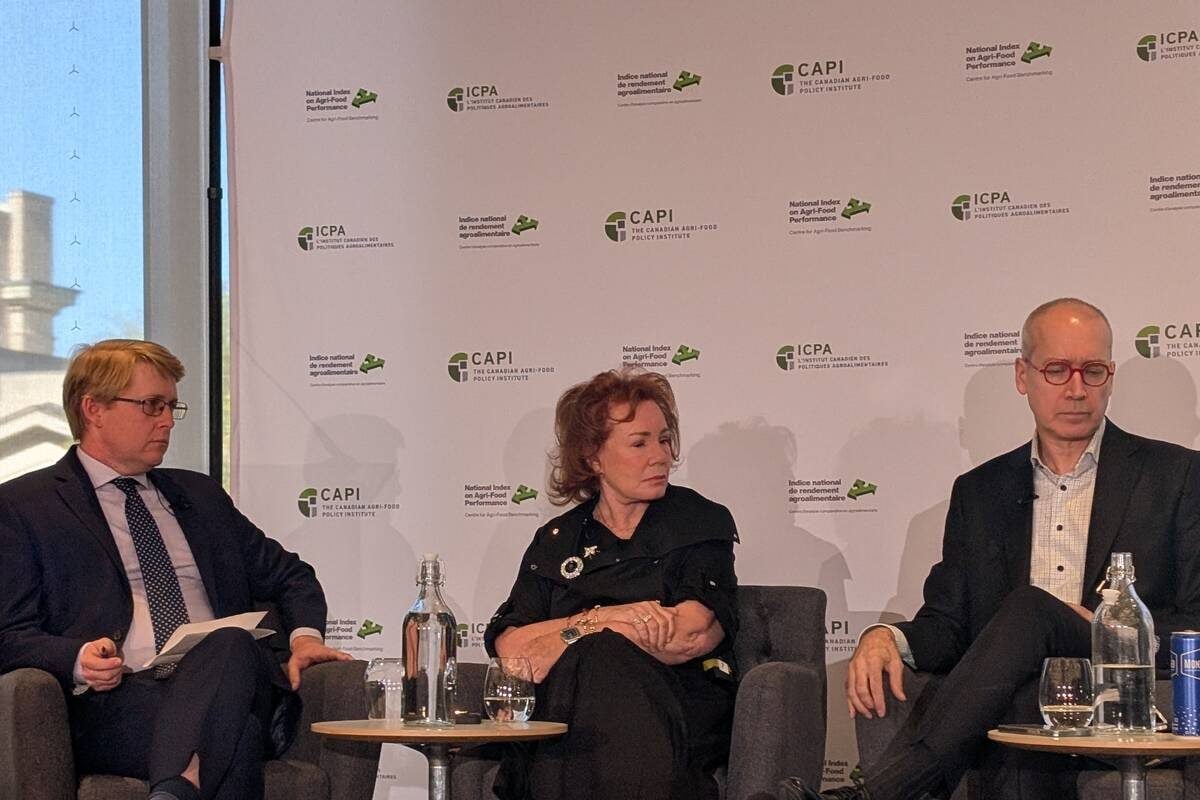The Manitoba government is shutting down an agency that was supposed to boost cattle slaughter capacity in the province.
In an announcement released Aug. 30, Manitoba’s agriculture minister Ron Kostyshyn said he’s shutting down the Manitoba Cattle Enhancement Council and will terminate a $2 levy on cattle sold in the province effective Sept. 1.
“As a cattle producer, I believe it is now time to end the levy before the fall cattle run,” Kostyshyn said, in a release.”
The government’s decision shocked Don Winnicky, a cattle producer in Vita, Man.
Read Also

Arlene Dickinson says recent trip to Asia opened her eyes to new trade opportunities
Arlene Dickinson says Canada must take up decades-old suggestions to support the agriculture and food sectors
“I can’t believe it. I’m almost speechless to think that the government would finally back down.”
The province set up MCEC in 2006 in response to the BSE crisis and to encourage the construction of a federally inspected beef slaughter plant in Manitoba.
The council poured an estimated $6.8 million, from the $2 levy on cattle producers and a matching $2 levy on taxpayers, into a proposed slaughter plant in Winnipeg. The project, known first as Keystone Processors and then ProNatur, was supposed to slaughter 250 to 500 head per day and produce beef for the kosher and halal markets. The estimated cost of the plant ranged from $30 to $40 million.
In 2009, the federal government provided a $10 million loan for Keystone Processors and the province also contributed millions to the proposed plant.
The project began to unravel in the summer of 2011 when the federal government pulled its $10 million loan, citing deficiencies in the business plan.
Over the last couple years, the government appointed MCEC board and council communication consultants repeatedly said they were seeking private investors to replace the federal dollars.
After years with little progress, cattle producers grew tired of MCEC promises that ground would be broken on the plant in a few months.
“There’s absolutely nothing to show what they’re taking our money for,” Winnicky said in 2012. “(I) happened to drive past where the proposed plant is supposed to be. It’s just a parking lot. There’s nothing there.”
Other ranchers were also frustrated with MCEC, as the Manitoba Beef Producers passed resolutions at two annual meetings, calling on the government to end the levy.
“We applaud the decision,” said Trevor Atchison, MBP president and a rancher near Pipestone, Man. “Our members have asked for the check-off to quit.”
Atchison was surprised by the province’s decision but it’s not totally unexpected given the economics of the cattle industry.
“There’s less cattle to slaughter in Manitoba… and North America, which has created an oversupply of slaughter capacity,” he said. “So the ability to build new and compete is probably worse now.”
Winnicky said Plains Processors, a provincially licensed slaughter plant in Carman, Man., that’s expanding to become a federally licensed facility, was also a factor.
“That’s probably the biggest reason of all, why the government finally realized why private industry has to do it.”
In its release, the government said an independent third party would work with MCEC to wind down the organization.
Manitoba Cattle Enhancement Council facts:
• Manitoba government created MCEC in 2006. It was funded by a voluntary $2 levy on cattle sold in the province and a matching $2 contribution from taxpayers
• Since 2006 MCEC has collected $5.6 million in levies from producers, taking into account check-off refunds
• The Council invested $6.8 million to develop a 250-500 head per day slaughter plant in Winnipeg
• Included in that total, it spent $1.2 million to purchase the plant site, $2.1 million to operate the cut plant while it produced beef in a former Maple Leaf Foods hog plant, $237,000 to demolish the old plant and more than $1.0 million on professional fees















